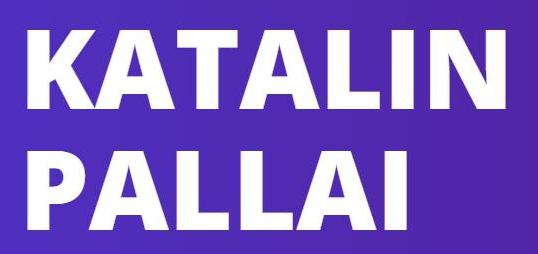Leadership Academy of the Council of Europe
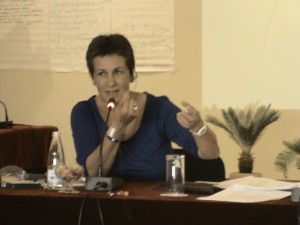 3(4) times 3 days trainings that are combined with activities designed for the implementation by participants alone or in peer pairs in-between the training modules. The target group is local leaders (Mayors, politicians and leaders in the administration) – the best is when more people take part from one locality, as they can later create a team for change. Content elements cover: concepts and competencies of modern leadership, systematic analysis of leadership challenges in municipalities, organizational development, strategic approaches and relations with stakeholders. More detailed content presented by the mind maps attached to the end of the file.
3(4) times 3 days trainings that are combined with activities designed for the implementation by participants alone or in peer pairs in-between the training modules. The target group is local leaders (Mayors, politicians and leaders in the administration) – the best is when more people take part from one locality, as they can later create a team for change. Content elements cover: concepts and competencies of modern leadership, systematic analysis of leadership challenges in municipalities, organizational development, strategic approaches and relations with stakeholders. More detailed content presented by the mind maps attached to the end of the file.
Councilor Training
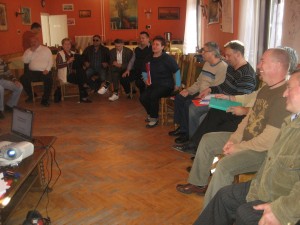 2-3 day training organized for newly elected local councils – possibly for the whole council or most of its members. Training components assist the participants to acquire the knowledge, the appropriate attitude and the necessary competencies that are required to foster decentralization and make municipal administration and management a success. The interactive method of the training is adapted to develop personal competencies, in-group relations and develop some shared assumptions for the future work. Conceptual elements covered include: local democracy and sustainable local development and management, accountability, principles of decision making, planning, participation and communication, financial management, organizational management, public service management.
2-3 day training organized for newly elected local councils – possibly for the whole council or most of its members. Training components assist the participants to acquire the knowledge, the appropriate attitude and the necessary competencies that are required to foster decentralization and make municipal administration and management a success. The interactive method of the training is adapted to develop personal competencies, in-group relations and develop some shared assumptions for the future work. Conceptual elements covered include: local democracy and sustainable local development and management, accountability, principles of decision making, planning, participation and communication, financial management, organizational management, public service management.
Local Community Management for active community groups and members
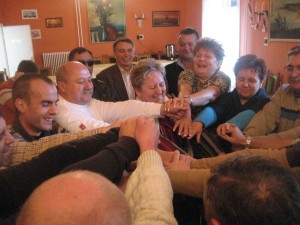 On the way to more open governance municipalities may recognize that it is better to collaborate with (lay) community leaders who can understand the principles of local governance and have an overall picture about the operation of the local government. The course could offer learning for community leaders to become more constructive external partners and to improve their leadership competencies as well. In ideal case potential lay community leaders of 2-3 locality (5-8 from each) could be trained together, as working together during the training would contribute to the ‘forming’ and ‘norming’ of local community groups. (1 LG staff may also participate) The course material could be developed through the adaptation of the Councilor Training material, adding some elements from the Leadership Academy and my Consensus Building courses.
On the way to more open governance municipalities may recognize that it is better to collaborate with (lay) community leaders who can understand the principles of local governance and have an overall picture about the operation of the local government. The course could offer learning for community leaders to become more constructive external partners and to improve their leadership competencies as well. In ideal case potential lay community leaders of 2-3 locality (5-8 from each) could be trained together, as working together during the training would contribute to the ‘forming’ and ‘norming’ of local community groups. (1 LG staff may also participate) The course material could be developed through the adaptation of the Councilor Training material, adding some elements from the Leadership Academy and my Consensus Building courses.
Public participation in local governance, Academy for Mayors, Hungary
The Academy for Mayors was established by the Corvinus University and the Associa-tion of Hungarian Local governments with the support offered by the Norwegian bilateral funds. Within the frame of the Academy the elected decision makers receive a one year long post graduate education. After the success of our mediation course designed for the first year of the program, I received an invitation to elaborate a module on public participation. The course is focused on those practical considerations and competencies that decision makers need to have in order to make wise decisions on and fulfill their role in local participatory processes. The discussion of the basic concepts and methods are connected to concrete cases and widely used practices. The cases are also the starting points for the discussion of possible decision criteria, dilemmas, costs and benefits of participatory processes.
Governance and participation training courses
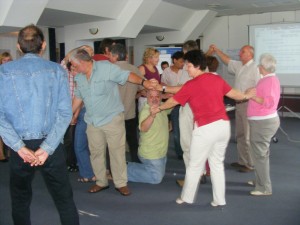 Some ten years ago my PhD dissertation was based on the analysis of public sector paradigms (traditional, managerial, governance). After the dissertation I developed courses where I used the conceptual framework developed for the dissertation for practical analytical exercises of local government policies and practices. Such exercises help local decision makers to better understand the hidden assumptions, logic and explanations of different personal and institutional routines and practices. Becoming more conscious of the paradigms has greatly helped leaders to capture and name differences, identify needed changes and develop approaches more consistent with their own values and goals. The key sources of my conceptual framework seem to be the same as the one of KDZ, but in the applications for the analysis of participatory practices there are some differences, probably due to the difference in application contexts. (i.e. difference in the condition and imminent challenges of local governments in the two countries)
Some ten years ago my PhD dissertation was based on the analysis of public sector paradigms (traditional, managerial, governance). After the dissertation I developed courses where I used the conceptual framework developed for the dissertation for practical analytical exercises of local government policies and practices. Such exercises help local decision makers to better understand the hidden assumptions, logic and explanations of different personal and institutional routines and practices. Becoming more conscious of the paradigms has greatly helped leaders to capture and name differences, identify needed changes and develop approaches more consistent with their own values and goals. The key sources of my conceptual framework seem to be the same as the one of KDZ, but in the applications for the analysis of participatory practices there are some differences, probably due to the difference in application contexts. (i.e. difference in the condition and imminent challenges of local governments in the two countries)
Multi-ethnic Community Management
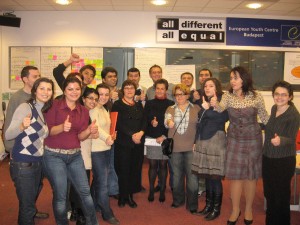 Between 2005 and 2011 I worked for 7 years as faculty in the frame of this program established by the Open Society Institute and had the opportunity to develop and teach courses with leading experts of minority rights and other fields of minority studies. The courses focused on local political opportunities (and limitations) in the accommodation of the needs and aspirations of ethno cultural minorities. The course development was an interdisciplinary work where my role was to bring in the knowledge of local governance, dispute resolution and field experience from local democracy building. During the course development I worked with the minority experts to develop an integrated conceptual framework and experience based teaching material to discuss existing local multicultural policies and practices and to identify the major issues and dilemmas in the local management of ethnocultural diversity. Each course was presented to a widely international audience, including participants from Europe, Africa, Asia. The courses I designed and led with a co-trainer were: Minority rights and local governance; Power sharing in Multi-ethnic Communities; Public Policy Process in Multi-ethnic Communities; Service delivery in Multi-ethnic Communities; Managing Conflict and Urban Development in Multi-ethnic Communities.
Between 2005 and 2011 I worked for 7 years as faculty in the frame of this program established by the Open Society Institute and had the opportunity to develop and teach courses with leading experts of minority rights and other fields of minority studies. The courses focused on local political opportunities (and limitations) in the accommodation of the needs and aspirations of ethno cultural minorities. The course development was an interdisciplinary work where my role was to bring in the knowledge of local governance, dispute resolution and field experience from local democracy building. During the course development I worked with the minority experts to develop an integrated conceptual framework and experience based teaching material to discuss existing local multicultural policies and practices and to identify the major issues and dilemmas in the local management of ethnocultural diversity. Each course was presented to a widely international audience, including participants from Europe, Africa, Asia. The courses I designed and led with a co-trainer were: Minority rights and local governance; Power sharing in Multi-ethnic Communities; Public Policy Process in Multi-ethnic Communities; Service delivery in Multi-ethnic Communities; Managing Conflict and Urban Development in Multi-ethnic Communities.
